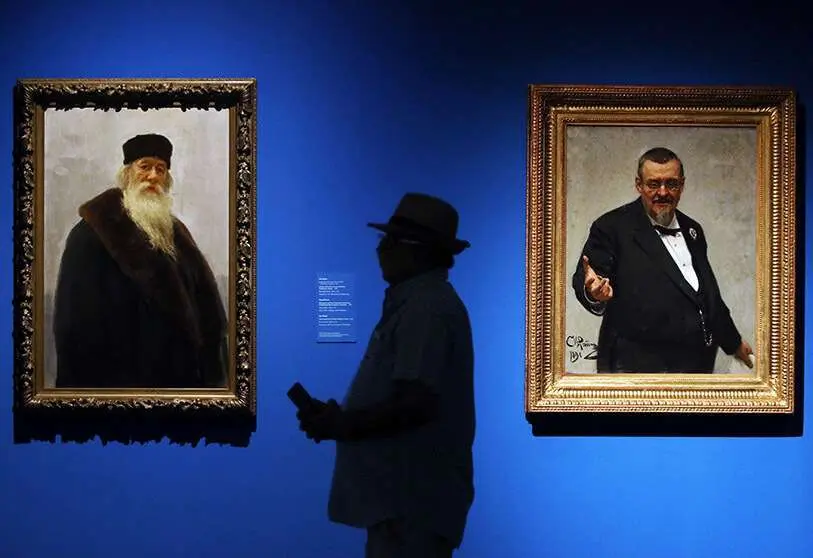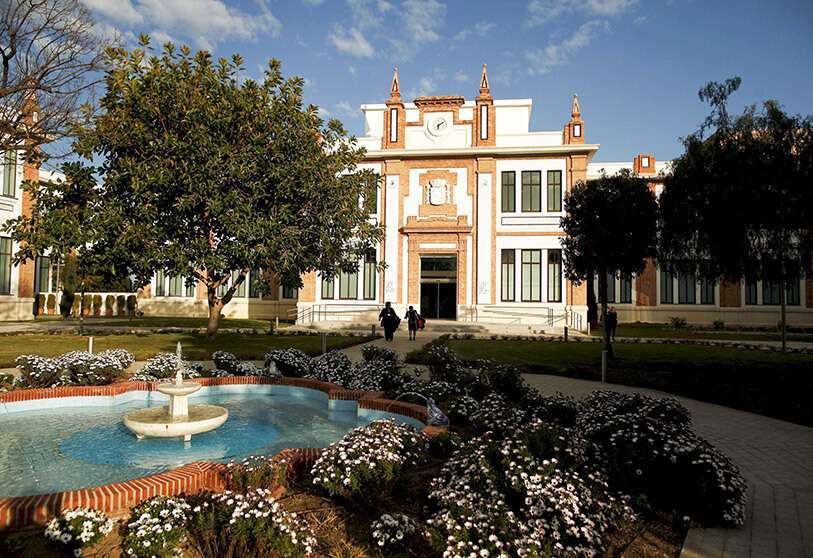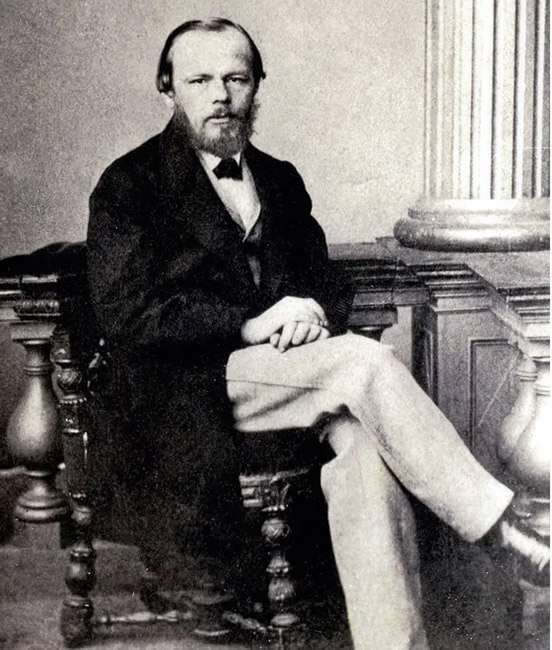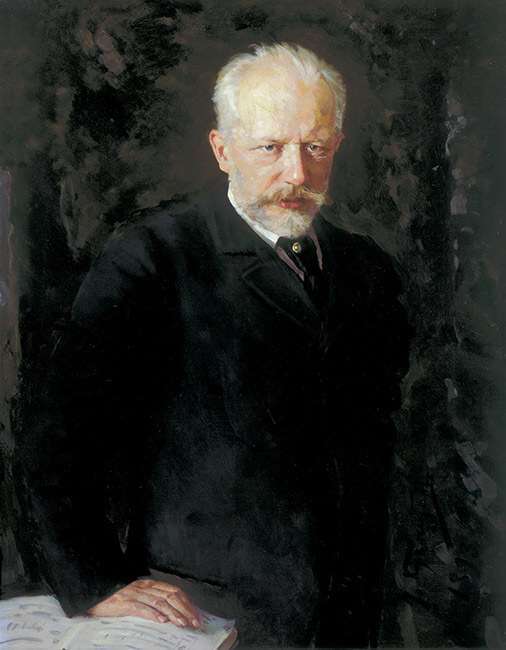José Manuel Cabra de Luna: " You don't get more help just by silencing more"

José Manuel Cabra de Luna: "People are often not their rulers"
"Culture is the greatest repository of dignity that peoples have. Often the powers that be, spurious powers, try to govern it, dominate it, tame it, but culture always emerges because it is the greatest exponent of freedom". These are the words of the president of the Royal Academy of Fine Arts and painter, José Manuel Cabra de Luna, expressed in the extraordinary plenary session of Malaga City Council in defence of the Russian Museum housed in the city.

The institution, which has been open since 1895 and was founded by the last Russian Tsar - Nicholas II - became a topic of debate in the Andalusian city - despite the Malaga cultural centre's numerous condemnations of the invasion of Ukraine - due to its cultural connection with Russia.
This art gallery has hosted numerous Russian authors since its inauguration - even those who were censored by the USSR - and is the only one in Europe outside Russian borders. But for the duration of the conflict between Ukraine and Russia, the museum will be in a state of hibernation, as it will not be able to receive any more collections due to sanctions. However, some voices were raised inside and outside Malaga politics demanding the closure of the museum as a repulse to the Russian invasion.
Olga Luvakova, a Russian resident and English teacher in Málaga, responded to these demands in the same plenary session in tears: "The war will pass, but what will remain? The emptiness? The hatred? I think that in these days the Russian Museum and the city of Malaga can teach the whole world that art and culture are above all else, above politics".
It is this hatred and revulsion towards Russian culture that is spreading like an epidemic across Europe since the invasion of Ukraine began, provoking a strong wave of Russophobia.
On 2 March, news came as a surprise that the Bicocca University in Milan had decided to postpone a series of lectures and courses on Fyodor Dostoevsky and Russia given by the Italian scholar Paolo Nori. The letter sent by the university excused the postponement of the course with "the aim" of avoiding "any form of controversy, especially internally, at this time of great tension".

Following this, the writer and expert on Russian culture explained on social media that what was happening in Ukraine was "horrible", but that he thought it was ridiculous to censor a course because of it. He also said that "not only is being a living Russian a crime in today's Italy, but so is being a dead Russian, who when he was alive in 1849 was condemned to death for having read something forbidden. For an Italian university to ban a course on an author like Dostoyevsky is something I can't believe, and when I read this email I didn't believe it".
The video quickly spread through the networks, provoking countless interactions. This prompted the university to rectify the situation, which issued a statement announcing that it had reinstated the course. But Nori refused to teach it, after a meeting with the university's pre-rector who had explained that the postponement was due to the university's wish to include some "Ukrainian authors" along with Dostoyevsky. The scholar explained that "unfortunately, I don't know any Ukrainian authors, so I release you from your commitment and the course I should have taken in Bicocca I will take elsewhere".
 .
.
However, the battle against Dostoevsky in Italy did not end with this anecdote. On 2 March, following the viralisation of the video, the mayor of Florence, Dario Nardella, made public on his Twitter account that he had been asked to "throw down" the statue of Dostoyevsky in the city. The mayor explained in the same tweet that we should not be confused, because "this is the mad war of a dictator and his government, not of one people against another. Instead of erasing centuries of Russian culture, let's think about stopping Putin quickly".
The statue, which pays tribute to the writer, was donated by the Russian government last year for the 200th anniversary of his birth. The writer had had a special bond with the Italian city, which he visited twice and which inspired him to finish his work entitled 'The Idiot'.
Last week, the conductor of the Cardiff Philharmonic Orchestra, Martin May, decided to remove the Russian composer, Tchaikovsky, from the upcoming programme due to the conflict with Ukraine. According to the press release published on the St David's Hall website, "the Cardiff Philharmonic Orchestra [...] considers the previously announced programme, including the 1812 Overture, to be inappropriate at this time". It also explained that, instead of Tchaikovsky, the orchestra will replace the programme with one focusing on the Czech composer Antonín Dvořák's Overture No. 8.
This situation quickly went viral and provoked criticism from both outside and inside the English island. The decision came as a surprise, not least because the composer was known for his harsh criticism of Russian nationalism in his time. The editor of the American magazine Reason, Billy Binion, emphasised this fact and called the situation ironic. He also pointed out that the Russian musician "died more than a century ago", and described Tchaikovsky's retirement as madness. Binion ended the tweet by explaining the need for culture and "more so in times like these".

Spain's Teatro Real also commented on the decision. The general director, Ignacio García-Belenguer, spoke during a press conference about the culture of cancellation. He expressed the senselessness of the decision and that the Spanish institution owed it to "the artists". He also explained, as reported by the Europa Press news agency, that "the Teatro Real had already decided to cancel the performances of the Bolshoi Ballet in Moscow because the Russian government was behind it. We condemn the Russian leaders' decision (to invade Ukraine), but that is one thing and the artists are another".
A similar decision to that of the English orchestra was made by the chairman of the board of the Chubu Philharmonic in Japan, Takahisa Kato, who withdrew the 1812 Overture. Kato justified the action by saying that "while there are people who may appreciate it purely as music, there are others who might wonder why we would perform a Russian victory anthem".
Numerous Russian artists are being forced to explain their position on the situation in Ukraine. Opera director Andreas Homoki explained in the New York Times that this situation was totally new for Russian artists, and that "politics has never been on our minds like this before".
Artists and institutions are bewildered at being forced to give up all those cultural links they had gained after the fall of the USSR. The director of Opera in Paris, Alexander Neef, explained to the New York Times that not everyone could be suspected, and that "you can't demand statements of loyalty or condemnation of what is going on".
These exposed cases have raised numerous debates on whether or not these sanctions on culture are effective against Russia, and how it affects our society. The situation in Ukraine has increased the rejection of Russian society and its culture, and these situations may increase these feelings of hatred.
Last week numerous Russian associations in Spain reported on the rise of Russophobia in the country. Radio Televisión Española showed in a publication how several children of Russian origin had been called "murderers" by their own classmates in the wake of the invasion of Ukraine.

Disassociating Russian culture from the war in Ukraine is important to avoid what has happened in other conflicts. To avoid the stigmatisation of a society by political decisions. José Manuel Cabra de Luna ended his speech in the Malaga plenary by explaining that "all solidarity, but it is not possible to help more by silencing more [...] and that culture needs to manifest itself, it needs to reach the hearts of the people, since the soul of the people is represented there".








